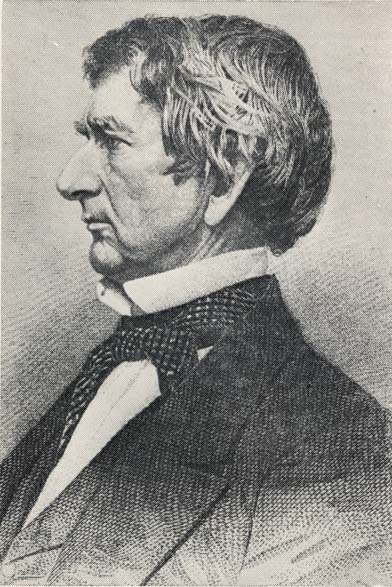William Henry Seward, born in Florida, N.Y., May 16, 1801, graduated from Union College in 1820 and three years later, having studied for the law, began to practice in Auburn where he made his home for the rest of his life. His leaning towards politics gradually drew him away from the legal profession and from the age of twenty-nine, when he was elected to the New York Senate, until his death he was prominent in the political affairs of the state and the nation.
In 1838 Seward was elected the first Whig governor of New York. His four years in office, although made difficult by internal dissensions in his party, were marked by wise measures of reform. The natural history and geological survey of the state was begun at this time with the founding of the State Museum of Natural History. After consulting with his old friend, Dr. Eliphalet Nott of Union College, he secured the establishment of public schools free from sectarian influence in the cities.
Elected to the United States Senate in 1849 he attained prominence as party leader and adviser to the President. His first set speech attracted the attention of the whole country in urging the exclusion of slavery in all new states as demanded by "a higher law than the Constitution."
When Abraham Lincoln became President in 1861, Seward was made secretary of state. He reorganized the diplomatic service and retained the confidence of Europe which was considering recognition and support of the Confederacy. At home he was a great influence behind the Lincoln and Johnson administrations.
In 1865 he was seriously injured in a carriage accident and while recuperating at his home was brutally attacked, on the evening of Lincoln's assassination, by a fellow-conspirator of Booth. He gradually regained his health and remained in the cabinet of President Johnson until the expiration of his term in 1869 when he returned to private life.
As a man Seward was an interesting combination of kindness of heart and a calm, undemonstrative manner which might have been mistaken for indifference. He was indifferent to many things, such as the criticism of the press, and he loathed personal controversy. He was cheerful and generous and had a wide range of interests and sympathies. He stands out as one of the most attractive and important figures in a critical period of American history. He died on October 10, 1872.
